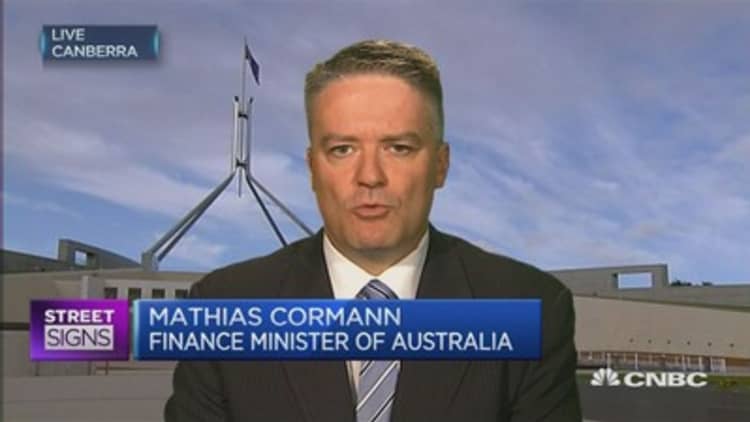National Australia Bank, the country's No.1 lender by assets, on Wednesday posted a 15.5 percent rise in annual profit and announced it would spin off and sell its under-performing UK operations through an initial public offering early in 2016.
The British business, which has been plagued by bad debts and misconduct charges, has long been a thorn on NAB's side, dragging returns and net profits for the group.
On Wednesday, NAB said it was forced to set aside 1 billion Australian dollars ($719.30 via million) for the year-ending September 2015 to cover the British business against charges relating to the mis-selling of loan insurance to individuals and hedging products to small businesses.

NAB, which has long trailed its three main rivals on earnings growth and shareholder returns, made withdrawing from offshore and low-returning businesses a priority under CEO Andrew Thorburn who took the helm last August.
"It's a complex transaction," Thorburn told reporters on Wednesday, when asked about a 4-6 weeks delay in executing the deal. "We have been absolutely focused on this. I am sure shareholders will be happy when we are done."
About 75 percent of Clydesdale Bank shares would be offered to NAB shareholders while 25 percent would be sold in an IPO, the bank said.
Under Thorburn, NAB has left the United States and was ahead of its rivals in raising A$5.5 billion capital to meet tighter regulatory requirements. On Wednesday it also confirmed sale of 80 percent of its insurance unit to Japan's Nippon Life Insurance.
Read MoreBets for Aussie weakness are on the rise, again
Annual cash profit, which excludes one-offs and non-cash accounting items, rose to A$5.84 billion for the 12 months to Sept. 30 from A$5.2 billion a year ago and A$6.3 billion consensus of five analysts polled by Reuters. Earnings missed expectations because of higher charges related to its UK business.
Net interest margins slipped by 4 basis points to a record-low 1.87 percent largely due to stiff business lending competition.

